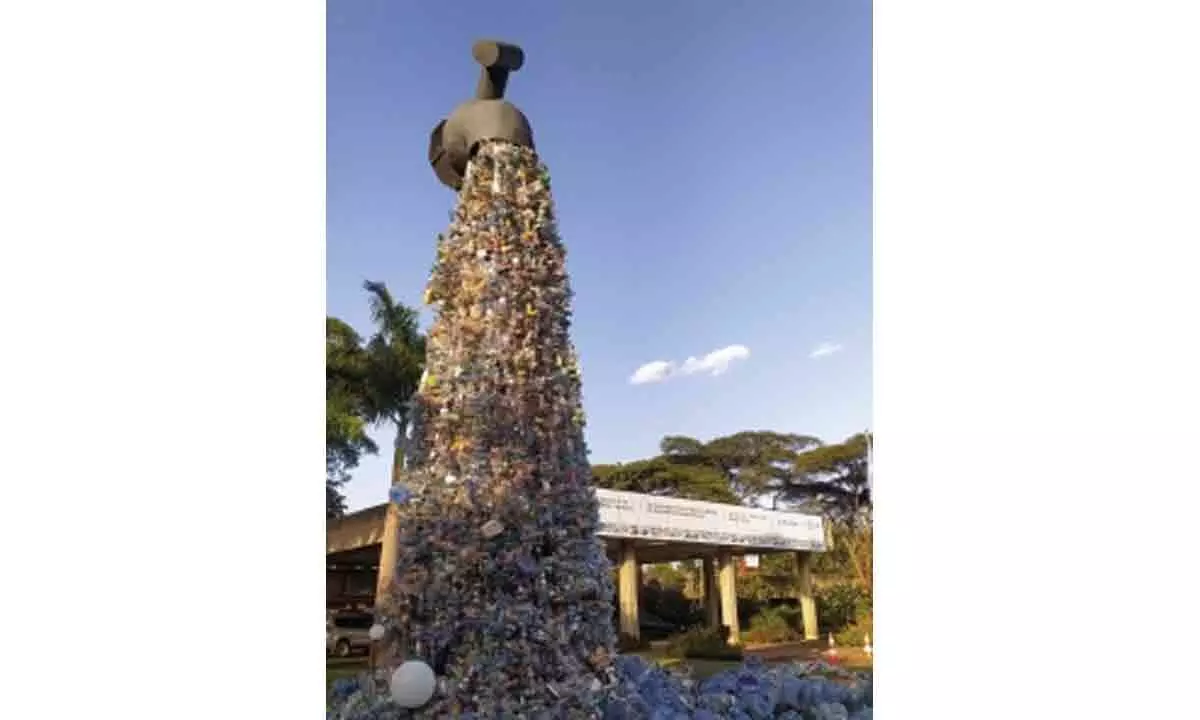Session to develop global legally binding instrument on plastic pollution begins in Nairobi
Share :

The third session of the Intergovernmental Negotiating Committee to develop an international legally binding instrument on plastic pollution, including in the marine environment (INC-3), opened on Monday in the Kenyan capital, Nairobi.
Nairobi : The third session of the Intergovernmental Negotiating Committee to develop an international legally binding instrument on plastic pollution, including in the marine environment (INC-3), opened on Monday in the Kenyan capital, Nairobi.
INC-3 members will start negotiations on the basis of the zero draft text prepared by the Chair of the INC.
INC-3 marks the mid-point of the journey towards a global treaty. It follows two earlier rounds of negotiations: INC-1, which took place in Punta del Este, Uruguay, in November 2022, and INC-2, which was held in Paris in June. Two more INC sessions are planned for 2024.
“To deal with plastic pollution, humanity must change. We must change the way we consume, the way we produce and how we dispose our waste. This is the reality of our world. Change is inevitable. This treaty, this instrument that we are working on, is the first domino in this change. Let us bring it home. Let the change begin,” Kenyan President William Ruto said at the opening of the session.
In her remarks at the opening of INC-3, the Executive Director of the UN Environment Programme (UNEP), Inger Andersen, said: “The resolution passed at UNEA 5.2 (the fifth United Nations Environment Assembly in 2022) called for an instrument that is, and I quote, ‘based on a comprehensive approach that addresses the full life cycle of plastic.”
“Not an instrument that deals with plastic pollution by recycling or waste management alone. The full life cycle. This means rethinking everything along the chain, from polymer to pollution, from product to packaging,” she added.
“We need to use fewer virgin materials, less plastic and no harmful chemicals. We need to ensure that we use, reuse, and recycle resources more efficiently. And dispose safely of what is left over. And use these negotiations to hone a sharp and incisive instrument to carve out a better future, free from plastic pollution.”
“We now have had the opportunity to have the first round of discussion on all elements of the future instrument,” Chair of the INC, Gustavo Adolfo Meza-Cuadra Velasquez, said.
“It is my hope that by the end of the session, the committee will agree on a mandate for a revised draft and possible intersessional work to prepare for that fourth and fifth sessions,” he added. “I am confident that we can make substantive progress here at our third session and capitalise on the Nairobi spirit, consensus and ambition.”
The start of INC-3 was preceded by two days of preparatory meetings on November 11 and 12, also in Nairobi, during which delegates engaged in initial, informal exchanges of views.
Jyoti Mathur- Filipp, Executive Secretary of the INC, thanked the government of Kenya, delegates and other stakeholders for their support for the negotiations, stressing that, “We must work collectively ensuring all views are heard so that we can build consensus and move forward swiftly to to fulfill our mandate.”













